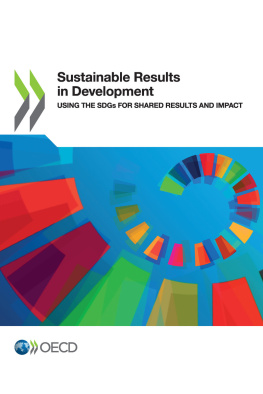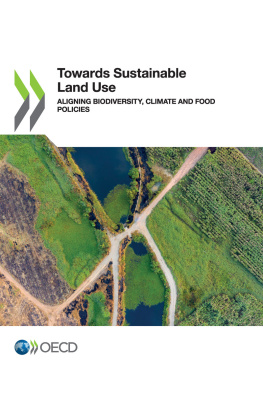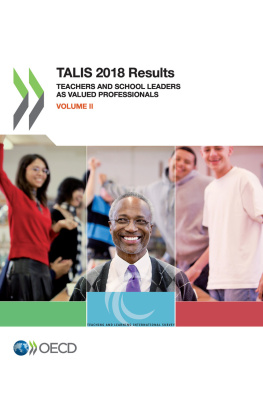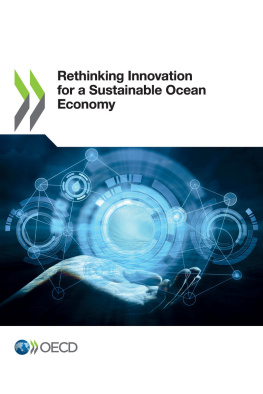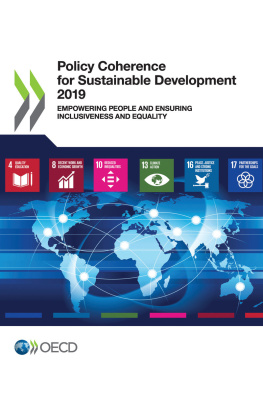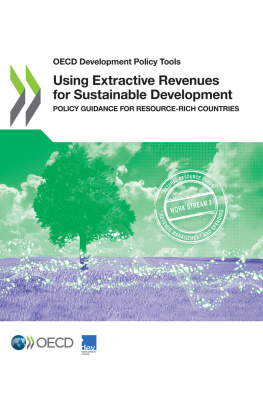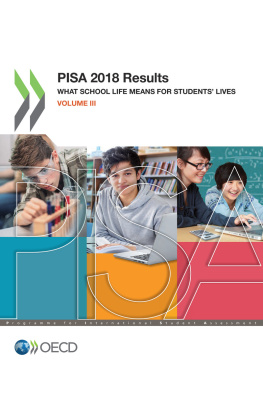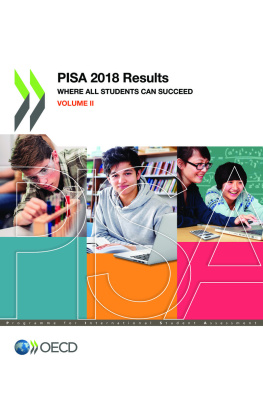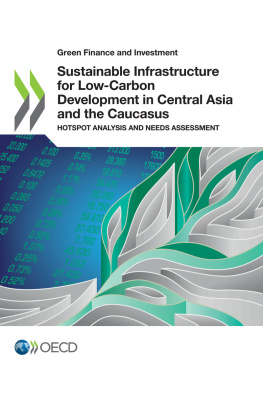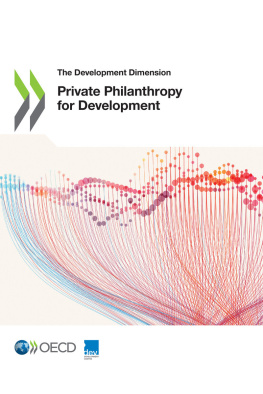OECD - Sustainable Results in Development
Here you can read online OECD - Sustainable Results in Development full text of the book (entire story) in english for free. Download pdf and epub, get meaning, cover and reviews about this ebook. year: 2019, publisher: OECD Publishing, genre: Politics. Description of the work, (preface) as well as reviews are available. Best literature library LitArk.com created for fans of good reading and offers a wide selection of genres:
Romance novel
Science fiction
Adventure
Detective
Science
History
Home and family
Prose
Art
Politics
Computer
Non-fiction
Religion
Business
Children
Humor
Choose a favorite category and find really read worthwhile books. Enjoy immersion in the world of imagination, feel the emotions of the characters or learn something new for yourself, make an fascinating discovery.
Sustainable Results in Development: summary, description and annotation
We offer to read an annotation, description, summary or preface (depends on what the author of the book "Sustainable Results in Development" wrote himself). If you haven't found the necessary information about the book — write in the comments, we will try to find it.
OECD: author's other books
Who wrote Sustainable Results in Development? Find out the surname, the name of the author of the book and a list of all author's works by series.
Sustainable Results in Development — read online for free the complete book (whole text) full work
Below is the text of the book, divided by pages. System saving the place of the last page read, allows you to conveniently read the book "Sustainable Results in Development" online for free, without having to search again every time where you left off. Put a bookmark, and you can go to the page where you finished reading at any time.
Font size:
Interval:
Bookmark:
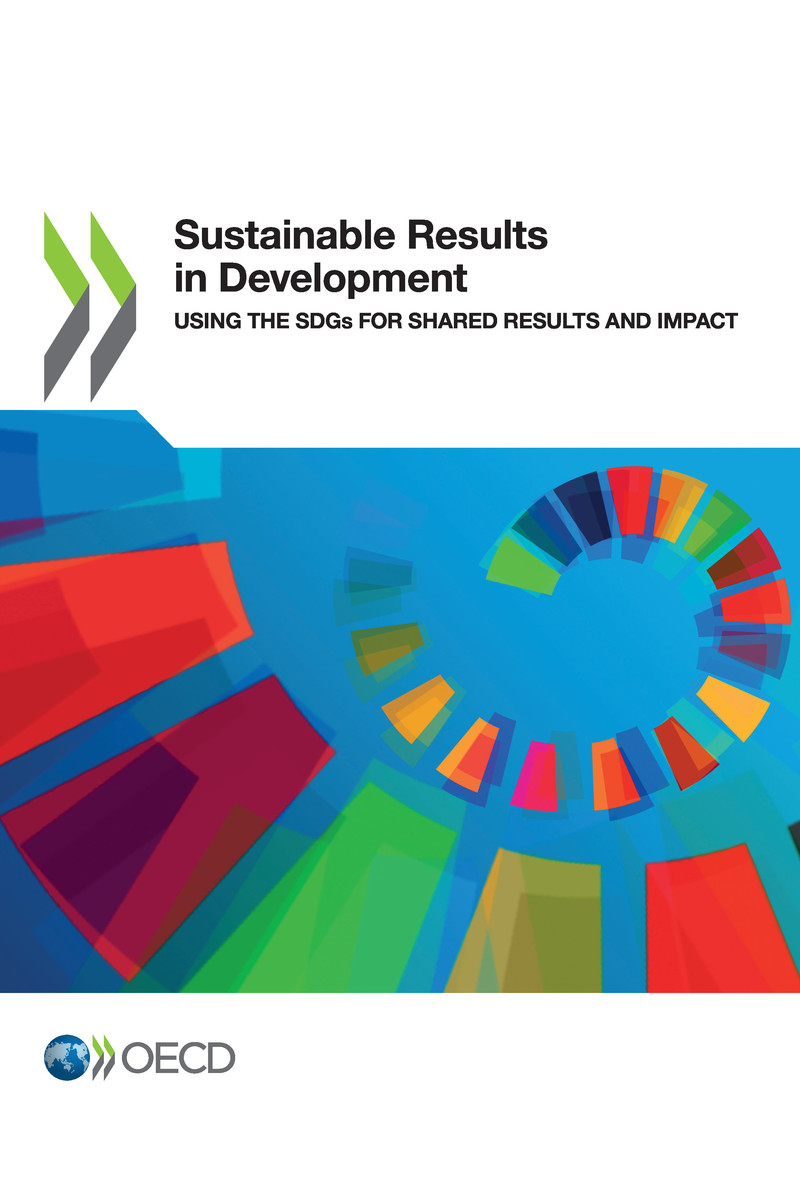
OECD (2019), Sustainable Results in Development: Using the SDGs for Shared Results and Impact , OECD Publishing, Paris, https://doi.org/10.1787/368cf8b4-en .
Helping development agencies obtain more and better information on the results they achieve has been a central part of the work of the Development Co-operation Directorate. However, in the age of the Sustainable Development Goals (SDGs), this work has gained new impetus: the scope and ambition of the 2030 Agenda for Sustainable Development is such that every decision of these agencies needs to count towards making peoples lives better.
The 17 SDGs and their 169 targets, measured by 232 indicators, provide a common framework for all actors, public and private, working towards sustainable development: they help identify synergies, avoid duplication and parallel processes, and maximise the impact of their efforts.
Since 2015, the OECD/DAC Results Community -- an open group of close to 500 members from bilateral and multilateral organisations, partner countries and think tanks-- has been striving to understand better how the SDGs can be an entry point for more and better data on results. In particular, it has helped define a typology of results information and produce guidance on how to use the SDGs in corporate results frameworks.
Building upon case studies in the education, sanitation and energy sectors, this report provides practical insights on how to use SDG indicators when planning for, and measuring development results at country level. It paves the way for detailed guidance to be crafted in 2020 on how to adapt agencies results-based approaches in different country contexts in order to help them achieve the SDGs.
This report was prepared by Alejandro Guerrero and Chantal Verger, under the strategic guidance of Rahul Malhotra. Rosie Zwart led the conceptualisation and implementation of the field research and contributed to draft Chapters 2, 3 and 4. Michael Bally and Ola Kasneci contributed with research and editorial work across the various chapters.
This report would not have been possible without the careful review of many brilliant minds. The document was reviewed and commented on by a Steering Group composed of Andrea Ries (Swiss Agency for Development and Cooperation); Yongyi Min (Chief, SDG Monitoring, United Nations Department of Economic and Social Affairs); Margaret Thomas (Chief, Development Impact Group, United Nations Development Programme); Jolline Benefice (Policy Analyst, DAC Peer Reviews, OECD); Rebekah Chew (Policy Analyst, Global Partnership for Effective Development Co-operation Monitoring Co-ordinator); Rolando Avendao (Advisor, PARIS21); Olivier Thery (Head of Results Unit, Belgian Ministry of Foreign Affairs); Simon Kisira (Head, Strategic Planning and Knowledge Management, African Unions NEPAD); Brian Baldwin (Senior Expert on Results-Based Management); Myriam Van Parijs (Head of Evaluation Office, ENABEL); and Paige Kirby (Senior Policy Advisor, Development Gateway).
Several experts also reviewed specific chapters with a distinctive SDG focus. Arthur Contejean (International Energy Agency) reviewed and commented on Chapter 4 (energy access). Tom Slaymaker (WHO-UNICEF Joint Monitoring Programme) and Jean-Nol Gangloff (European Commission) reviewed Chapter 3 (sanitation and hygiene). Michael Ward (PISA for Development) and Jordan Naidoo (United Nations Educational, Scientific and Cultural Organization) provided useful comments on Chapter 2 (education proficiency). Jolline Benefice (DAC Peer Reviews, OECD), Cibele Cesca (Global Partnership for Effective Development Co-operation), Simon Kisira (NEPAD) and Olivier Thery (ENABEL, Belgium) provided useful suggestions for these three chapters.
A draft version of this full report was reviewed and discussed at the 10th Meeting of the OECD-DAC Results Community, held in Paris in April 2019.
The authors are very grateful for all the useful comments and suggestions. Any possible error remains the exclusive responsibility of the authors.
Last but not least, the OECD is also deeply grateful to the governments of Ethiopia , Kenya and Myanmar for their hospitality and engagement during the country case studies, as well as to the governments of Australia and Finland and the European Commission for joining the OECD team in carrying out the necessary country-level analysis that supports this study and its conclusions.
Font size:
Interval:
Bookmark:
Similar books «Sustainable Results in Development»
Look at similar books to Sustainable Results in Development. We have selected literature similar in name and meaning in the hope of providing readers with more options to find new, interesting, not yet read works.
Discussion, reviews of the book Sustainable Results in Development and just readers' own opinions. Leave your comments, write what you think about the work, its meaning or the main characters. Specify what exactly you liked and what you didn't like, and why you think so.

